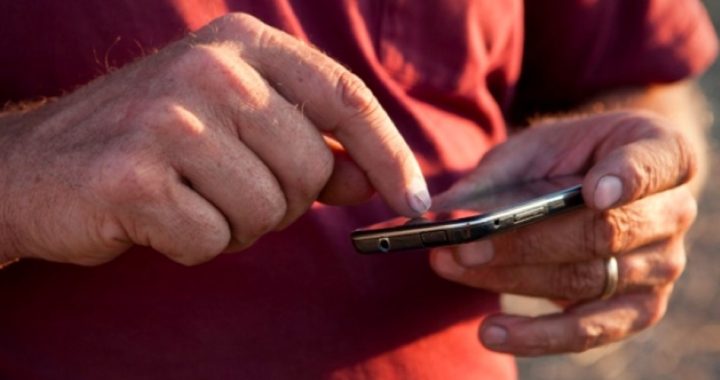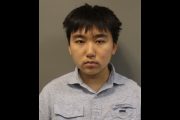
When a CBS affiliate reported on Wednesday the existence of a hotline that anonymous callers in New York state could use to report neighbors who possibly might illegally possess a firearm, some claimed the timing with the recent passage of New York’s SAFE Act was just too coincidental.
The new law will turn many gun owners into outlaws on April 15, when the law goes into effect. It bans the possession of any firearms magazines that can contain more than seven rounds. It requires all citizens who own “assault weapons” to register them with the state. It allows law enforcement officials to “preemptively seize a person’s firearms without a warrant if they have probable cause [that] the person may be mentally unstable or intends to use the weapons to commit a crime.” (Emphasis added.)
Many gun owners will automatically become criminals on April 15 unless they bring themselves into compliance prior to then. Some gun owners have announced that they won’t comply with the new law. Of course, many are already suspicious of the motives of Governor Andrew Cuomo and his allies. They rushed the bill through the legislature in Albany in January following closed-door negotiations that eliminated any committee hearings and suspended the three-day rule allowing public review of all bills. So to many gun owners, suddenly reviving an already-existing anonymous tip hotline by publicizing it just seemed a little suspect.
The tip hotline has been maintained by the state of New York for more than a year. It was announced back in February 2012 as one of four programs initiated for the stated purpose of reducing gun violence. Specifically, the announcement included “creating a toll-free tip line to encourage citizens to report illegal firearm possession.” But nothing much was made of the matter at the time, with many law enforcement agencies not even aware of the tip line until last Wednesday. John Grebert, the executive director of the New York State Association of Chiefs of Police, which boasts of close ties to the Cuomo administration, took credit for reviving the tip line:
In our most recent meeting on Monday afternoon, we talked about reviving this tip line and informing our members about it by sending out a message and scheduling a conference call about it.
Grebert went on to say that this was just part of his association’s efforts to help “provide local law enforcement with additional resources to help them in their efforts to reduce gun-related and violent crimes in their jurisdictions.”
The tip line — 1-855-GUNSNYS — which is supplemented with a text line — GUNTIP — allows residents to report those whom they suspect, rightly or wrongly, might possess one of those unregistered “assault weapons” or soon-to-be-illegal magazines to the authorities. A state trooper will take down the information in detail and then forward it to a local law enforcement agency, which will then investigate.
If the tip results in an arrest (a conviction isn’t necessary), the tipster receives a check for up to $500.
Pushback against the now-revived hotline was instantaneous. Assemblyman Steve McLaughlin called it a “neighbor vs. neighbor snitch line”:
This initiative seeks to turn neighbor against neighbor and use their own tax dollars to pay for the $500 reward. Confiscating these once-legal firearms from law-abiding citizens and pitting neighbors against one another does nothing to address the root cause of violence with guns in our society: illegal handguns used by real criminals.
Assemblyman Bill Nojay said the tip line has obvious implications to enforcement of the SAFE Act, with anonymous callers informing on persons whom they suspect of being violators of the new law:
What do you do about [those refusing to register]? You go to the old formula of regimes with unpopular programs and you develop a snitch or informant network.
Assemblyman Bill Reilich also sees the dangers inherent in such a tool:
I am concerned that [the SAFE Act] is going to turn law-abiding citizens into criminals and this bounty program is only going to further exacerbate the problem.
John Tedesco, the chief of police for Troy, New York, has constitutional concerns about how the tip program will work. Not only would the process of following up on a tip be a lengthy one, it would be fraught with constitutional issues as well:
You simply can’t appear at someone’s doorstep, bust a door down, go in and take a weapon and [then] try to go to a judge later and say, “Well, your honor, we thought [a crime] was going to happen. They will want to see the proof [first].”
The day after details about the hot line surfaced in the media, the National Rifle Association announced it was suing to invalidate the SAFE Act, claiming that the new law violates the Second Amendment rights of New York State citizens “to keep commonly-possessed firearms in the home for defense of self and family and for other lawful purposes.”
Early in January Newark, New Jersey, Mayor Cory Booker set up a similar tip line, with a message eerily similar to that of New York’s. Booker, who is seeking to replace anti-gun Senator Frank Lautenberg when he retires next year, explained in a television commercial that “we have a program in our city right now that’s completely anonymous and we will give you cash … $1,000 cash to anyone who calls our anonymous tip line. Give us the information about who is carrying a gun and we don’t even have to have a conviction. We arrest that individual and simply get that gun off the streets.”
It’s becoming increasingly clear that administrations passing unpopular laws are going to try to expose alleged lawbreakers by bribing their neighbors with bounties to become snitches who then use anonymous tip lines to rat out people. It’s a tool that one would expect to find in a totalitarian state — not a free society.
A graduate of Cornell University and a former investment advisor, Bob is a regular contributor to The New American and blogs frequently at www.LightFromTheRight.com, primarily on economics and politics. He can be reached at [email protected].



